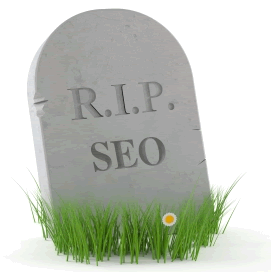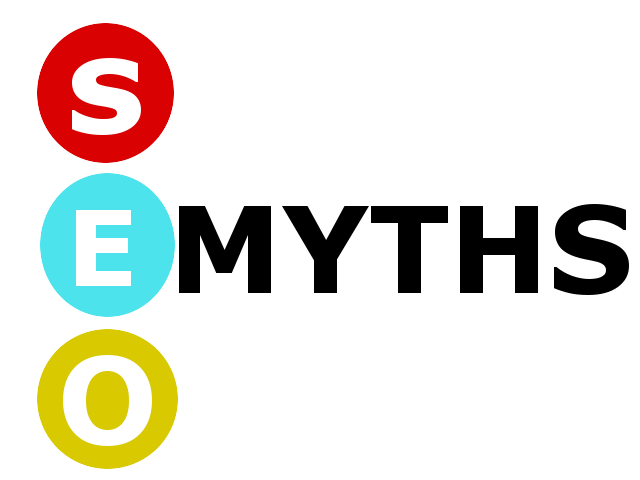For years we have heard numerous fairy tales and urban legends surrounding SEO practices. What works the best? What not to do? What will get you a butt load of traffic? All of this surrounding algorithms, keyword density, link popularity and those sneaky meta tags. And while some of the information is sound and helpful to your SEO cause, some of it is just as bogus as the Blair Witch Project.
Below are the top five that really should just be laid to rest.
1. SEO is Black Magic
Unless you are from the same planet as Marvin the Martian, or are living in a fairy tale castle full mirrors and smoke you know that SEO, like most everything else in life requires some degree of work for it to succeed.
In my opinion, SEO isn’t magic but science. It’s based on mathematical algorithms, research, and lots of testing. All of which you can then replicate your results over and over again. Day in and day out for yourself or your clients.
True, there are those SEO scammers out there (just like in every other part of this modern world’s service industries), however those that are SEO experts tend to float to the top of the big pool. Before hiring an SEO “expert” it’s highly suggested that you do your research. You wouldn’t go buy a car without doing some background work first would you? (Well most wouldn’t) Check their recommendations on social networks such as LinkedIn, Google+, and of course Google search.
2. SEO is Dead
 Haven’t we used the word “dead” enough yet? First it was Email, then SEO, pretty soon there will be those trying to tell us that Mobile is dying. Think about it folks, how many clicks do you think a headline like “SEO is Dead” brings?
Haven’t we used the word “dead” enough yet? First it was Email, then SEO, pretty soon there will be those trying to tell us that Mobile is dying. Think about it folks, how many clicks do you think a headline like “SEO is Dead” brings?
Organic search is still the number one way people get to your site. As long as SEO continues to be built on mathematical algorithms it is very unlikely that it will ever be truly dead.
Has SEO changed? Yes, and it continues to change, shift, and morph almost daily. It’s not the same as it was five years ago but it is still a vital part of your website visibility and traffic. Now a days it is handled in a more broad manner and contains far more factors than the early days of SEO. Just in the last four months the genre has been with such search updates as Panda, Penguin, Pirate, and Pigeon.
3. Content is the be all end all
All the content in the world will not get you the same visits as a set of well placed links. Does this mean that you shouldn’t concentrate on your content marking? Heck no! The world is still hungry for great (relevant) content. However, don’t move into the Field of Dreams delusion of that “If you build it they will come.”
If you are launching a new site or have on that you are just simply pumping content into with no link plan, stop the insanity now! Unfortunately this is yet another myth floating about – all link building is bad. It isn’t. Link buying on the other hand is in fact bad, unless you just intend to burn your site and want to take that risk. However, proper link acquisition is vital to a well positioned and highly trafficked site.
4. SEO is Cheap
My Momma always told me, “You get what you pay for.” This rings true to SEO as well. If you hire a cheap SEO “expert” you are most likely going to get a cheap service in return. More than not they will simply just change a few title tags, throw up some cheap links, and tweak your site a bit with keywords and such. This sub-par strategy will bring you, you guessed it, sub-par results.
Why aren’t SEO services cheap? Like most web industries, this is an ever-changing genre that requires constant research and updated knowledge. Experts needed to stay abreast of the sometimes daily changes to algorithms and tools. They should be constantly reading, consuming knowledge, and testing.
5. Google Hates SEO’s
To be clear Google hates BAD SEO’s and SEO’s that try to find loopholes around their algorithm rather than working in line with their guidelines. Google gets some of it’s best feedback from SEO’s, since SEO’s have a clear understanding both of how the search engines function and what Google is trying to achieve.
Let’s be honest if all rankings were left in Google’s hands alone and there was absolutely no SEO intervention, not even half the results Google returned would be relevant to what was searched for.
What other SEO myths have you encountered? Tell us your thoughts below.




![[Infographic] SEO Ranking Factors For 2013 ranking factors2013](https://scoop.offervault.com/wp-content/uploads/2013/07/ranking-factors2013.jpg)